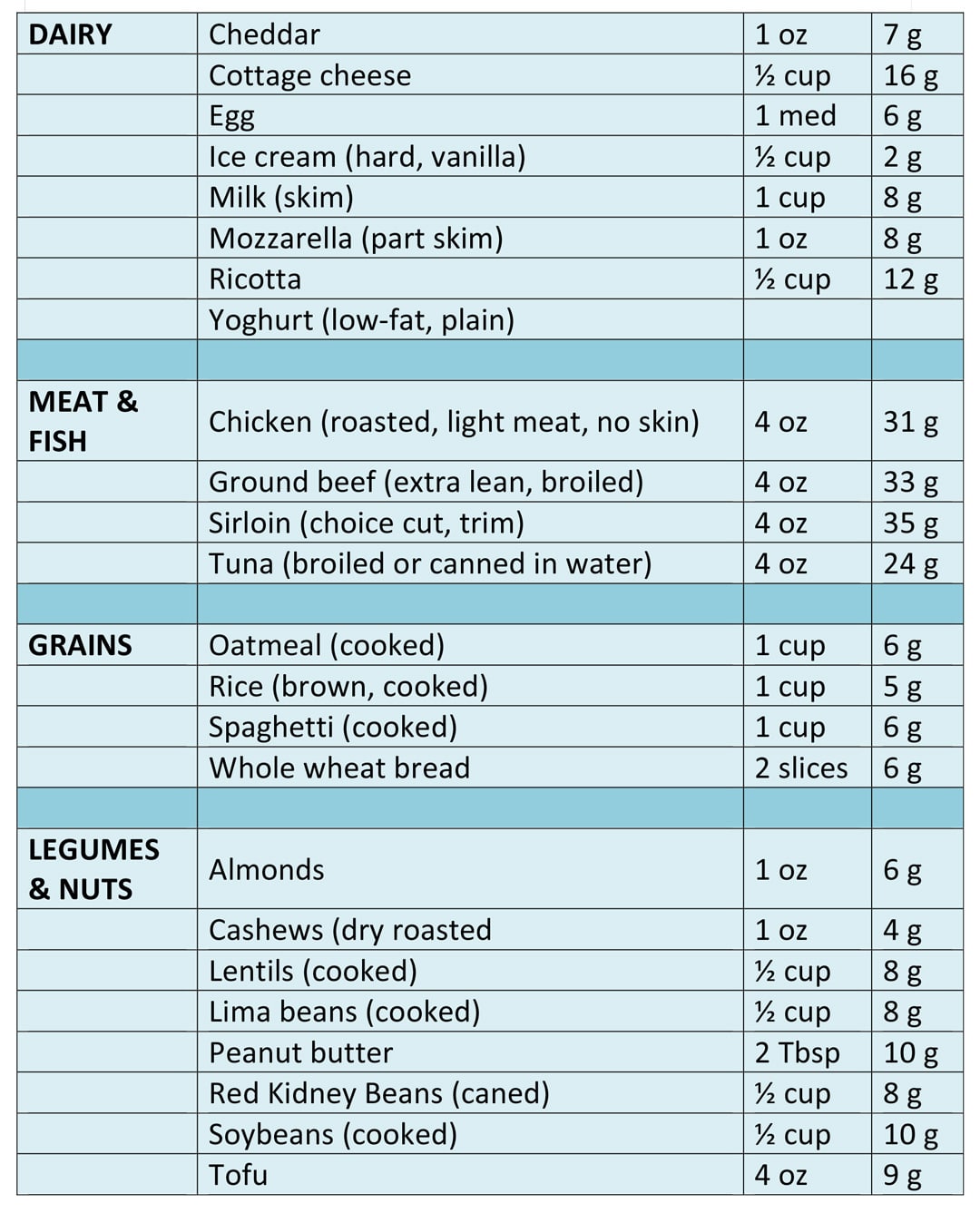Integrative Health|Nutrition
Nutrition for the Childbearing Year: Macronutrients, Micronutrients & Phytonutrients: All About Protein

ALL ABOUT PROTEIN
Introduction: What our bodies need
Our bodies require the macronutrients of proteins, fats and carbohydrates to function. We also need vitamins and minerals, the ‘micronutrients’. We are also discovering there are more and more benefits from ‘phytonutrients’, or plant elements, that serve to clear our bodies of free radicals, protect tissues, and perform other magic! The phytonutrients: carotene, lutein, lycopene and zeaxanthin have been identified as having major benefits for the body, and eating them in fresh, brightly colored vegetables and fruits play a significant role in our health.
Macronutrients
We are all familiar with the macronutrients: proteins, fats and carbohydrates, but pregnancy can be a great time to revisit some of our eating patterns and cultivate an awareness of the role they play in our health.
Protein: How much and what kind?
Proteins are the building blocks of cells and they are integral to the growing of your baby. Women require an additional 10-12 grams of protein per day during pregnancy and a total of 80-100 grams of protein per day—the top end is generally recommended. Although some studies have linked inadequate protein consumption during pregnancy to higher incidences of pre-eclampsia, it is generally thought that more research is needed to support this conclusion.
Can you have too much protein?
There have been some studies exploring excessive protein supplementation that show that there might be risks to consuming very high levels of protein. These risks include premature birth and a higher incidence of neonatal death. The ‘high protein’ supplements, powders, bars and drinks that are available have made it possible to replicate the extreme protein supplementation upon which these studies are based—some recommendations for ‘body building’ for example, are to consume a gram of protein per day for each pound of body weight; that means a 170 lb person would consume 170 grams of protein each day! If you stay within normal protein consumption levels and get your protein from a variety of sources you’ll be helping to grow your baby and prevent complications and pregnancy-related diseases.
Sources of protein
Here are some suggestions for what protein to eat during your pregnancy and beyond:


























